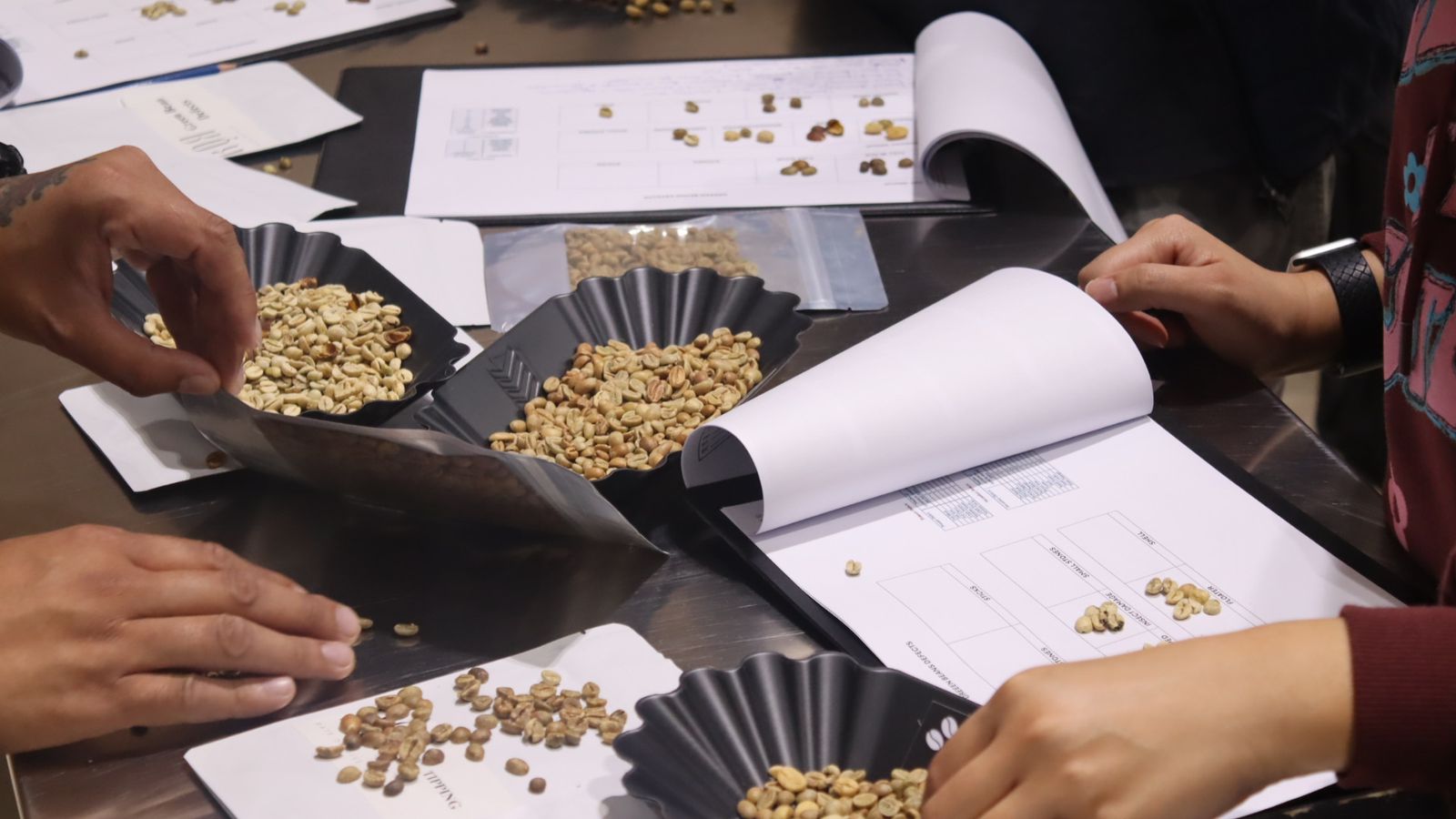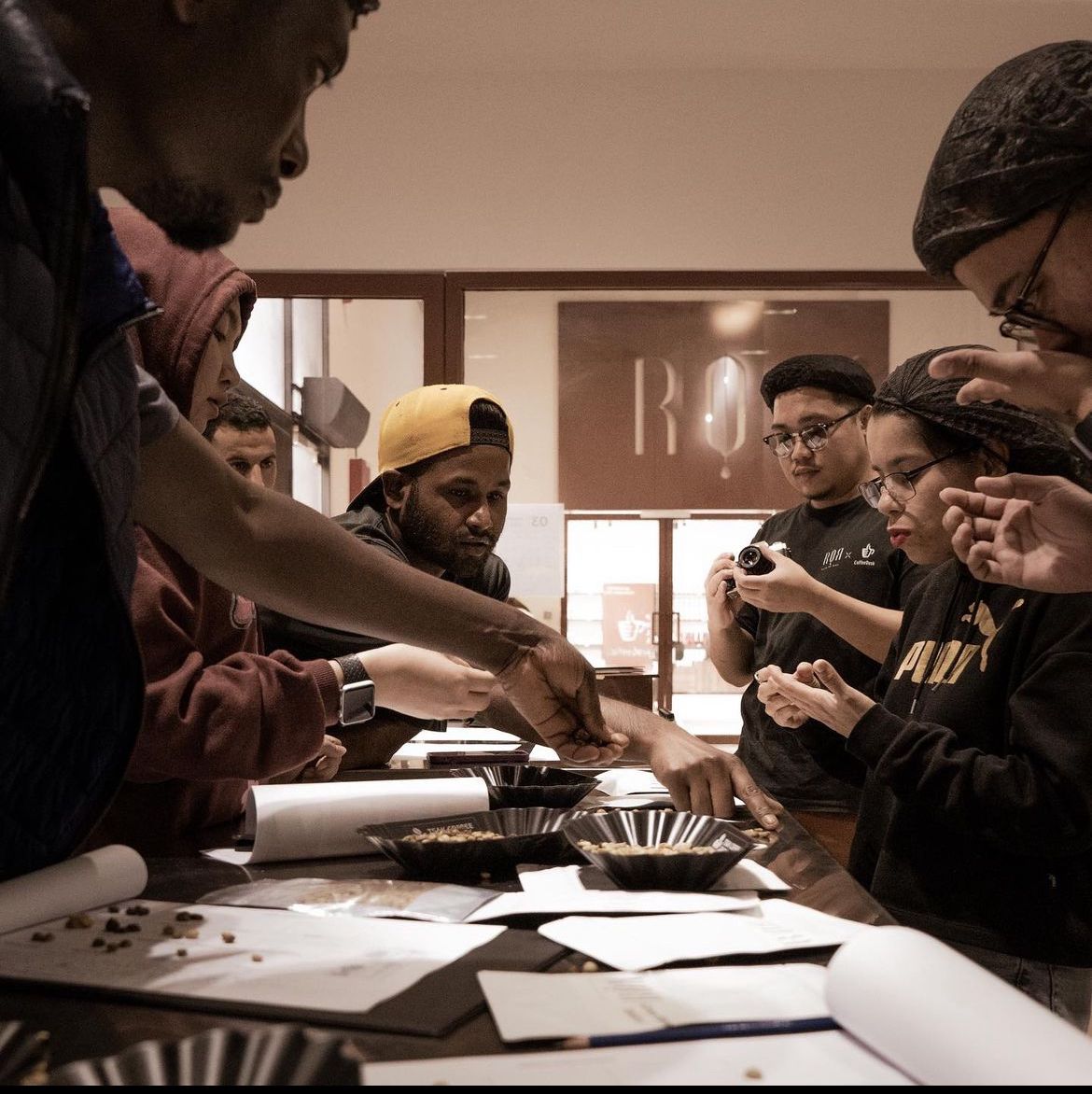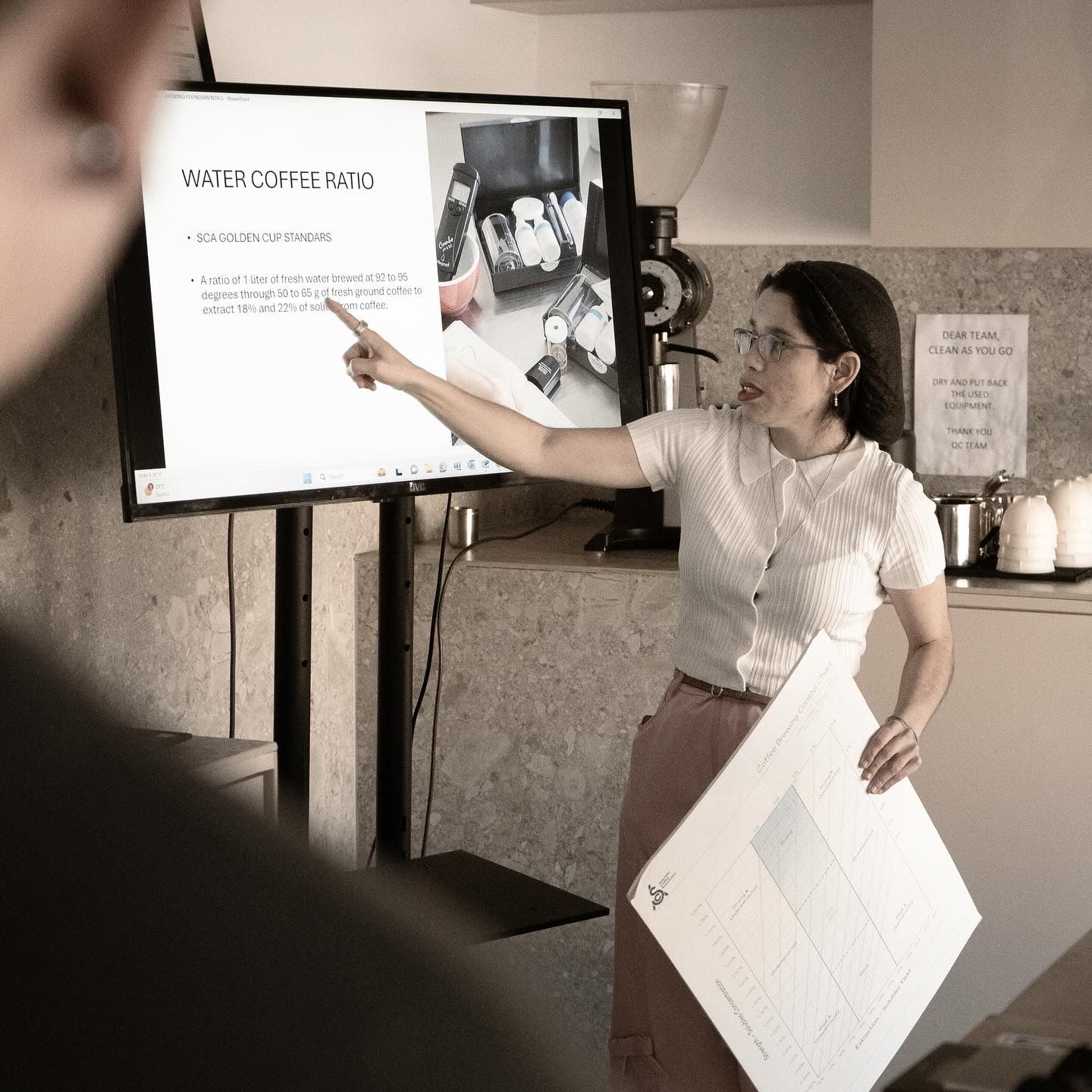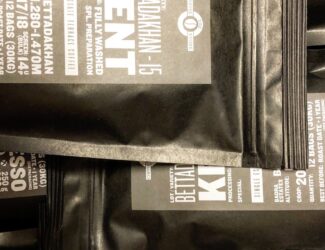
How we inadvertently gatekeep specialty coffee from new consumers!
By: Estella Zuleta Carmona
Head of Coffee and Trainer
Ever wonder why regardless of how much we try to engange with consumers and share all things coffee with customers, friends and even our family somehow specialty coffee consumers doesnt seem to go in a raise? And big chains continue to expand and reach broaders audiences
Perhaps the reason lies in the way we are communicating specialty coffee, a field and expertise that want it or not has a complex nature and that many of us, coffee professionals, want it to be valued and appreciated for its value, worth, and all the deep and hard labour behind it, regardless, we forget that in the same way we appreciate some things and ignore others, we cannot force people to enjoy the same hobbies or pleasures that we do.
We need to make it approachable, simple and easy to enjoy, but how can we achieve this out of an expertise that implies so many variables and complexities?
Maybe, the reason why its so difficult for regular consumers to engage with high quality specialty coffee is the result of us, the professionals constantly giving a greater importance to techniques, brewing styles, equipments and all the buzzing and confusing terms that newcomers barely understand, and that, contrarily, might aswell make them feel not involved, interested or fall for the intimidation of the snobbism that this brings along. Perhaps we are oversharing, overcomplicating the simpleness of drinking and enjoying good quality coffee with unnecessary details and this way gatekeeping the joys of the world of coffee for the enthusiasts and the coffee lovers.
I still remember an anecdote from a post i read sometime ago in a forum: there was a person explaining his mother was visiting him for vacations and was staying at his place. As a coffee professional he had all sort of tools and at first encounter his mother was incredibly surprised with all the equipments and toys in his kitchen.
One morning his mother asked him if he wanted some coffee and as he sat on the living room he could hear his mother doing different tasks, one of them, grinding coffee in his automatic machine but to his realization he forgot he never taught her how to operate it.
His mother started talking from the distance and complimenting him about how amazing was the coffee he had in his shelves, explaining how she ground a full cup of coffee and then filled the basket and pressed the button up to 4 times till she filled the entirety of the cups she was preparing for the both of them.
It was the best coffee she ever had, regardless of preparation, fancy techniques, knowledge or recipes. Just water and coffee.
Sometimes we forget that in the end, coffee is just coffee, and everybody display a different set of preferences and inclination towards specific flavours or sensations aswell as not everyone is capable of sensing and perceiving as many complexities we do in coffee, not even us professionals can perceive the different qualities of coffee at the same level, some of us display greater skills while others have it more complicated.
But something is certain, we need to make it simple, and perhaps, the best way we can approach to simplify the complex is by actually trying to understand it deeply, moving away from the snobbism and trying to enjoy all the different qualities of specialty coffee that origin has to offer us.
The greater we understand about it, the better we will be able to simplify, share and make it approachableWe should probably start with the flavours we can find in coffee, where does flavour originate? What influences flavour?
Understand the different degrees of enjoyable and non-ejoyable flavours.
Last week i held a class consisting on the defects that we can find in green coffee, most of us in the industry know theoretically and in practice how most of these can impart sensations and affect the quality of the coffee we drink. More specifically we spoke about the primary and the secondary groups of defects. The practice consisted of tasting these defects, becoming familiar with them. What are the predominant notes on a coffee presenting partial blacks, sours, insect damage or quakers?
Does any of these defect truly make the cup undesirable? Do we think other consumers could find these cups enjoyable? As the kids of the washed arabica standards we were taught standards when it comes to green quality standards, we were taught about defects and how green coffee should look like in order to present pleasant sensations. But in my personal experience i have encounter coffees that physically look bad, rugged, and sometimes even showcase partial or “pseudo quakers” regardless, sometimes the most ugly coffee is the tastiest on the table.
Sometimes we as professionals are bias and forget most of what we like and think is “correct” in coffee comes from learning standards, training and calibrating our palate with other professionals that, redundantly, were also taught standards on what taste good and what tastes bad.
So, the question that arises is: Are defects truly unplesant or we find them unpleasant because we were taught that way? Chances are, consumers and ours friends will probably not notice or even more, enjoy them.
On another hand, then we also have roasting and how this changes and transform the flavours we can find in our coffee. Overdevelopment? Underdevelopment, Fast roasts? Slow roast? Light, Medium, Dark roast? Colour? Humidity? Weightloss? Caramelisation? Highly complex or chemically simple coffees?
Understanding this can help us comprehend the result in our cups instead of blaming it on the method, the equipment, the extraction or any other variables, we might be capable of assessing and even appreciating the actual potential and quality of what we have in our hands while ignoring all the other factors that could have gone wrong, Just like a non professional or a regular consumer could enjoy a coffee without comprehension of all these peculiarities, they can perceive that the coffee they are drinking simply its better than any others.
Once we hace analysed and understood everything that has happened from seed and all the processes that were applied to the beans until the moment we got them in our cup, once we understood the quality of our green, once we understood all the processes going on during the roasting and how the flavours were modulated. Once we have moved away from our snobbism, judgement and learned preferences, theres only one thing left to do:Sip, share and enjoy.






